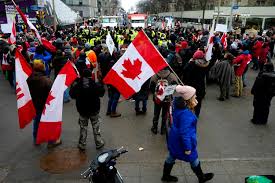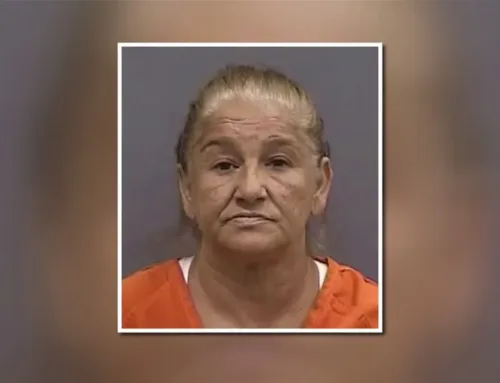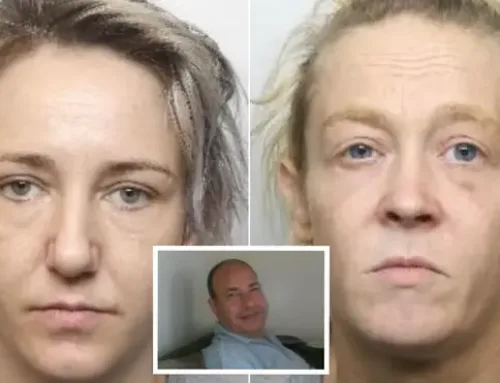Bill Curry
Published: March 7, 2022
-The Globe And Mail
The Canadian Bankers Association told MPs Monday that a “small number” of additional accounts were frozen under the Emergencies Act based on the banks’ own “risk-based” reviews and were not on a list of names provided by the RCMP.
Angelina Mason, the CBA’s general counsel and vice-president, made the comments during an appearance before the House of Commons finance committee, which is reviewing how the banking-related aspects of the special powers were used last month.
During her testimony, Ms. Mason said there has been considerable “misinformation” related to how the powers were used. She said the banks’ additional screening did not involve reviewing lists of individuals who had donated financially to the trucker convoy protests.
“We primarily relied on the names provided by the RCMP. But there were obligations under the order, separate from that, that required banks to make their own determinations,” she said. “We did not rely on external information. I know there’s been suggestions of leaked donor lists, et cetera. We did not rely on that information at all. What banks were obligated to do though was apply their normal risk-based approach in monitoring their accounts, as they would do for money laundering or what have you. And if something then was flagged … looking through the eyes of the activities in Ottawa, then there would be, again, an obligation to freeze.”
Ms. Mason said examples of activity that could lead to the flagging of an account include large deposits and activity that suggests an account is being used in connection to a fundraiser. Ms. Mason declined to say how many accounts were frozen by the banks using their own screening rather than relying on the RCMP’s list.
“A small donation wouldn’t have been caught by our normal risk-based approach,” she said.
Conservative MP Mark Strahl claimed last month that a constituent in his B.C. riding had her account frozen after she donated $50 to the convoy protest. Mr. Strahl has yet to provide evidence in support of his statement.
The government invoked the Emergencies Act for the first time in Canadian history on Feb. 14 and ended the use of the powers on Feb. 23.
At the time the powers were invoked, a protest in downtown Ottawa opposing Canadian COVID-19 restrictions was into its third week with no sign of ending. Large trucks were blocking the main streets close to Parliament Hill. Related protests at various border crossings were still under way.
The Finance Department has said about $7.8-million in about 206 accounts was frozen, but the total number of individuals involved would be less than that figure as some people had several accounts. The CBA said about 180 of those accounts involved banks, while the rest relate to other types of financial institutions. The CBA said Monday that all frozen accounts have since been unfrozen, except for those that are frozen in response to a court order.
Parliament approved the Emergencies Act in 1988 as a replacement for the War Measures Act.
From a policing perspective, the powers allowed officers to declare specific areas – such as downtown Ottawa or approaches to border crossings – as off limits to the public.
The financial aspects of the powers were the most unusual. The regulations approved by cabinet allowed banks to freeze personal and business accounts without obtaining a court order and without fear of being sued. Ms. Mason said the law compelled the banks to freeze accounts subject to the federal orders.
Ms. Mason said the banks relied on verbal briefings from federal officials in determining what actions were required.
“There was no published guidance as you would normally have for regulations,” she said. “That’s why we had to rely on briefings from Finance [Canada] to make sure we had absolute clarity on implementation.”
An RCMP statement issued on Feb. 24 said the powers were used to encourage individuals to leave the illegal protests “and deter them from counselling others to commit criminal offenses.” The RCMP also said the list was not based on donation lists.
RCMP assistant commissioner Michel Arcand, who also appeared Monday at the finance committee, said police calls to individuals who had been in Ottawa revealed the freezing had an immediate impact.
“Some comments that we received [were]: ‘We’re not going to go back. We’re back home. Please unfreeze our accounts,’” he said. “Some people left, being afraid that their accounts were going to be frozen.”




